When most people envision a holiday in south Turkey, flopping on the beach or by the pool is generally the first (and last) thought. But, in addition to wonderful culture, cuisine and activities of all sorts, this part of the Mediterranean coast has stunning, natural sceneries.
Based on the psychological and physical benefits that nature provides, it is essential that you centre your life on nature as much as possible. Especially when it comes to holiday preparation, it is crucial to make sure that your holiday property is located in a natural, tranquil and uncrowded environment, no matter in the country you choose to visit. This will ensure you a perfect recovery for the whole family.
Edenvillas-Kayakoy is a perfect location when it comes to spending your vacation in an area surrounded by fields, hills and pine forest away from crowds and buzzling streets.
In this post I would like to focus on the positive effects and inalienability of nature on body and mind, and why it is far more beneficial for holiday makers to spend their precious vacation time in a pristine and quiet holiday retreat located in the nature. The following paragraphs will show you why.
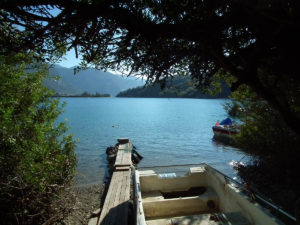
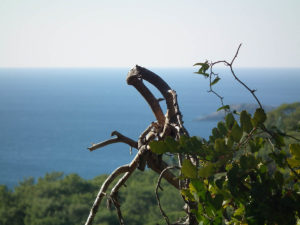
How Does Nature Impact Our Health?
Research reveals that environments can increase or reduce our level of stress, which in turn impacts our bodies. What you are seeing, hearing, experiencing at any moment is changing not only your mood, but how your nervous, endocrine, and immune systems are working.
Distancing our self from nature and finding “comfort” in a concrete jungle or similar environment will have a very adverse effect on us, mentally and physically.
The stress of an unpleasant environment, like for example heavy traffic or noisy polluted cities, can lead to depression and even cardio-vascular diseases. An agreeable natural environment reverses that.
In one study cited in the book Healing Gardens, researchers found that more than two-thirds of people choose a natural setting to retreat to when stressed. And regardless of age or culture, humans find nature pleasing.


Nature heals mind and body
Being in nature, or even viewing scenes of nature, reduces anger, fear, and stress and increases positive feelings. Exposure to nature not only makes you feel better emotionally, it contributes to a better physical health, reducing blood pressure, heart rate, muscle tension, and the production of stress hormones. It may even reduce mortality, according to scientists such as public health researchers Stamatakis and Mitchell.
Research done in hospitals, offices, and schools has found that even a simple plant in a room can have a significant positive impact on stress and anxiety.
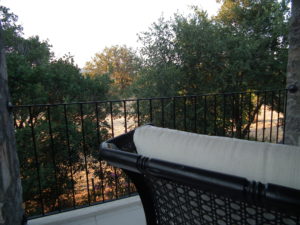

Nature relieves from pain
In addition, nature helps us handle pain. Because we are genetically programmed to find trees, plants, water, and other nature elements engrossing, we are absorbed by nature scenes and distracted from our pain and discomfort.
This is nicely demonstrated in a now classic study of patients who underwent gallbladder surgery; half had a view of trees and half had a view of a wall. According to the physician who conducted the study, Robert Ulrich, the patients with the view of trees tolerated pain better, appeared to nurses to have fewer negative effects, and spent less time in a hospital. More recent studies have shown similar results with scenes from nature and plants in hospital rooms.
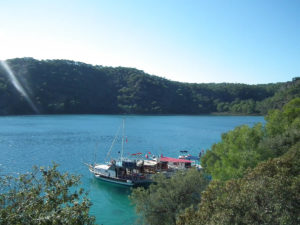
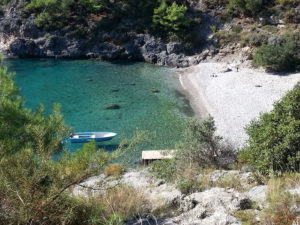
Nature revitalizes
One of the most captivating areas of current research is the impact of nature on general wellbeing. In one study in Mind, 95% of those interviewed said their mood improved after spending time outside, changing from depressed, stressed, and anxious to more calm and balanced. Other studies by Ulrich, Kim, and Cervinka show that time in nature or scenes of nature are associated with a positive mood, and psychological wellbeing, meaningfulness, and vitality.
Furthermore, time in nature or viewing nature scenes increases our ability to pay attention. Because humans find nature inherently interesting, we can naturally focus on what we are experiencing out in nature. This also provides a respite for our overactive minds, refreshing us for new tasks.
In another interesting area, Andrea Taylor’s research on children with Attention Deficit Hyperactivity Disorder (ADHD) shows that time spent in nature increases their attention span later.


Nature units
According to a series of field studies conducted by Kuo and Coley at the Human-Environment Research Lab, time spent in nature connects us to each other and the larger world. Another study at the University of Illinois suggests that residents in Chicago public housing who had trees and green space around their building reported knowing more people, having stronger feelings of unity with neighbours, being more concerned with helping and supporting each other, and having stronger feelings of belonging than tenants in buildings without trees. In addition to this greater sense of community, they had a reduced risk of street crime, lower levels of violence and aggression between domestic partners, and a better capacity to cope with life’s demands, especially the stresses of living in poverty.
This experience of connection may be explained by studies that used Functional magnetic resonance imaging to measure brain activity. When participants viewed natural sceneries, the parts of the brain associated with empathy and love lit up, however when they viewed urban scenes, the parts of the brain associated with fear and anxiety were activated. It appears as though nature inspires positive feelings that connect us to each other and our environment.


Nature Buffers Stress in Rural Children
Despite the fact that natural environment’s effect on the mental health of adults has been well documented, Wells suspected that nature’s moderating influence on stress might be even stronger in children. Research has shown that having nature close to a home protects the psychological well-being of children. And the impact is strongest for children with the highest levels of stressful life events. In addition, having green space around the home increments their cognitive functioning


Too much time spending in front of screens is deadly!
“Nature deprivation”, a lack of time in the natural world, predominantly due to hours spent in front of TV or computer screens, has been associated, unsurprisingly, with depression. More unexpected are studies that associate screen time with loss of empathy and lack of selflessness.
And the risks are even higher than depression and isolation. In a 2011 study published in the Journal of the American College of Cardiology, time in front of a screen was associated with a higher risk of death, and that was independent of physical activity. We need to be aware!
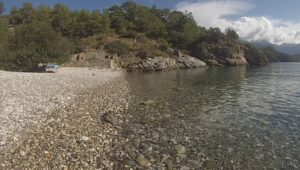

Stay nature focused in your holiday (and everyday life)
In addition to psychological and health benefits, financial advantages cannot be ignored. Hiking or biking in the woods or having a swim in a neighbouring sea or lake can be free, or (in the worst case) will cost far less as the amounts spent in overcrowded amusement parks and loud bars.
Hopefully the facts listed above will help you to take the right decisions with respect to your holiday planning. It is important to go beyond of the fact of just being aware of the benefits of nature; experiencing it is what will really help to revive.
Hope to meet you soon and wish you All the best
Oliver







